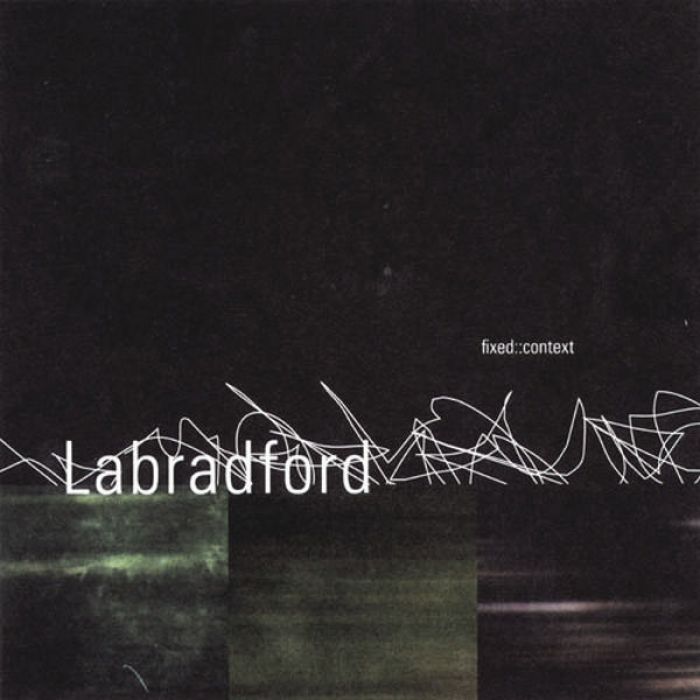Fixed::Context by Labradford (Review)

What is the sound of landscapes? The answer to that musical koan could very well be Labradford. Over the course several albums on Kranky, Labradford has explored all of the ways to conjure up wide open spaces, endless deserts, and drifting wintry wonderlands with their music. Fixed::Context finds the trio stripping down their sound to the essentials displayed on their first albums. Not that Labradford ever had any real “maximalist” tendencies to begin with. But their latter works had found them adding more instruments and sounds to the mix, and Fixed::Context finds them returning to their “roots,” so to speak.
The moods on Fixed::Context are quite similar to those on the group’s self-titled album and Mi Media Naranja, but if you can believe this, the group is even more patient and methodical this time around. That’s doubly amazing since the album isn’t even 40 minutes long. You’ll see what I mean after the first couple minutes of “Twenty” float by. This song may be the essence of Labradford, a slowly building piece that sees all of Labradford’s elements — e.g., ghostly guitars, brooding washes of synths and organs, and plodding basslines — exist right next to the glitch and gurgle of Pan American (Labradford’s dub-influenced side-project). As with Windy & Carl’s Antarctica, it’s another example of how music can bring down heart rates and slow time.
But “Twenty” can be exhausting, and I’d like to think that Labradford realized that. So they follow it up with some of their most beautiful music ever. “Up To Pizmo” almost sounds nostalgic, with its hazy synths (again, content to drift by more than anything else) and fragile guitars, while a bass pulse anchors the whole thing. “David” takes on an even more spacious approach, with the synths taking a much more omnipresent role, while the guitar and bass form a thick lattice somewhere below. Oddly enough, I’m reminded of those rare scenes in Blade Runner (the synthwork sounds vaguely Vangelis-esque) when the sun would occasionally peek through the near-perpetual rain and smog of the city.
Thankfully, Labradford know their limits, which explains why this “album” only clocks in around 37 minutes or so. Some might complain and say that they could exist in these songs forever, but let’s be realistic. As captivating as Labradford’s music can be, it’s still pretty sparse stuff. Plus the trio is fond of their sounds, and the same basic tones (especially on the guitar) seem to pop up everywhere. Even after being familiar with their music for several years, it took a few listens for “Twenty” to really draw me in; starting off with an 18 minute song is a surefire way to weed out your listeners.
At only 37 minutes, the album provides enough of a glimpse into Labradford’s musical spaces, without becoming overbearing. Like so many things, brevity is the soul of this album. The amazing thing is just how vast that brevity sounds.